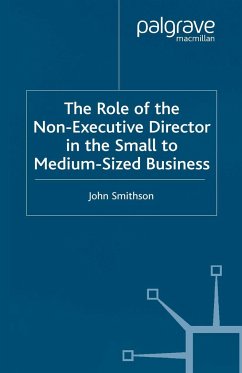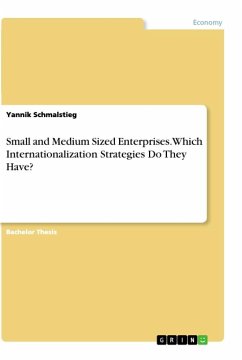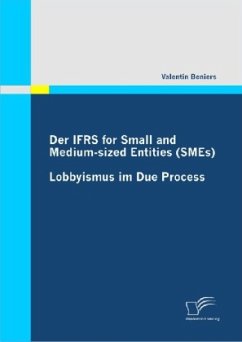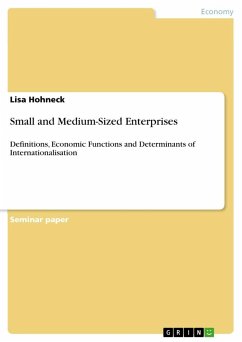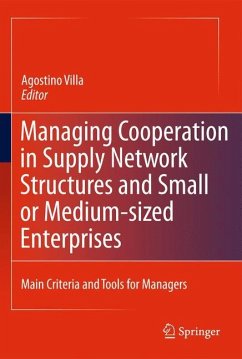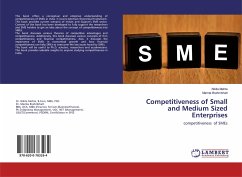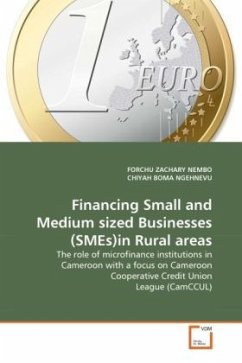
Financing Small and Medium sized Businesses (SMEs)in Rural areas
The role of microfinance institutions in Cameroon with a focus on Cameroon Cooperative Credit Union League (CamCCUL)
Versandkostenfrei!
Versandfertig in 6-10 Tagen
32,99 €
inkl. MwSt.

PAYBACK Punkte
16 °P sammeln!
While large scale businesses can easily secure finances through the numerous means available at their disposal, small and medium size enterprises (SMEs) often find themselves wanting when it comes to securing finances. However, with the proliferation of microfinance institutions (MFIs) nowadays, it is believed that SMEs will see sunshine as concerns securing finances. MFIs are termed as engines of growth in most rural economies. With this, we set out to investigate the role of MFIs in the development of SMEs. We used the Cameroon Cooperative Credit Union league (CAMCCUL) as a case study due to...
While large scale businesses can easily secure finances through the numerous means available at their disposal, small and medium size enterprises (SMEs) often find themselves wanting when it comes to securing finances. However, with the proliferation of microfinance institutions (MFIs) nowadays, it is believed that SMEs will see sunshine as concerns securing finances. MFIs are termed as engines of growth in most rural economies. With this, we set out to investigate the role of MFIs in the development of SMEs. We used the Cameroon Cooperative Credit Union league (CAMCCUL) as a case study due to its huge size and financing activities. It is found that CAMCCUL has a positive impact in the development of SMEs. Issues such as how easy or difficult it is for SMEs to secure loans from MFIs in the Cameroon context, the poverty implications of the results and other interesting issues have been looked into. This book is therefore designed to give more insight into how MFIs could be enginesof growth in rural areas and also useful for researchers in the fields of Microfinance, poverty and rural development and also to serve as a kit to those interested in setting up MFIs or running SMEs.



